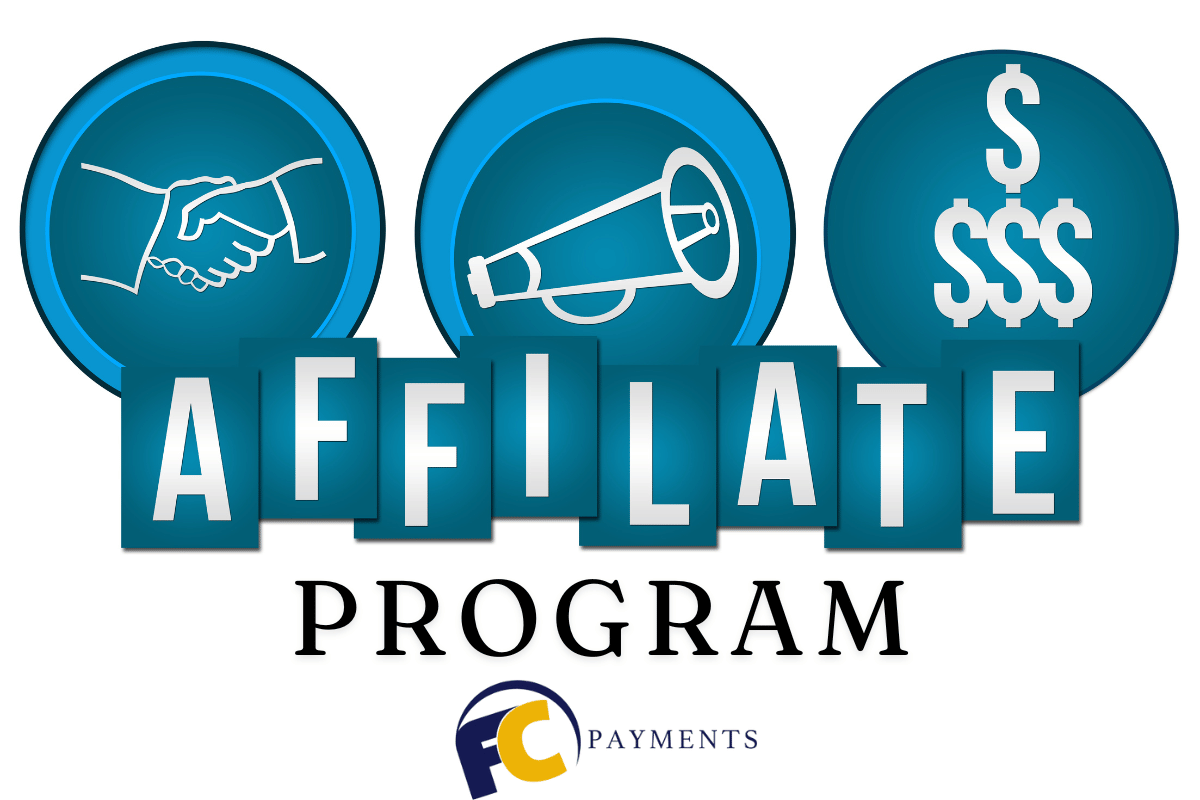
Enjoying The Benefits of Joining a Merchant Services Partner Program
Are you interested in earning steady income by partnering with a merchant services provider? A merchant services partner program allows you to earn commissions and residual income by referring businesses to payment processing solutions.
Typically, signing up as a First Card Payments merchant services partner program involves swiftly completing an online registration form and obtaining approval. You can become a referral partner here.
Key Takeaways
- The First Card Payments merchant services partner program offers profitable opportunities through diverse commission structures and recurring revenue from transaction fees of referred merchants.
- Joining our referral program is straightforward with quick online registration, unique referral mechanisms, and reliable commission payouts, making them accessible and lucrative.
- Successful affiliates earn high commission rates, receive reliable payouts, and comprehensive support.
Why Partnering with a Merchant Services Provider is Profitable

Moreover, our partnerships frequently yield residual income, with partners earning a share of the transaction fees for the duration of the referred merchant’s use of the service. This model ensures that partners receive a monthly revenue share from the credit card payments processed by their referred businesses, creating a reliable and recurring revenue stream.
Commission Structures
A broad range of commission structures, designed to reward partners for their promotional and sales efforts, is a characteristic of merchant services partner programs.
Certain programs reward agents who surpass client onboarding thresholds within a specified period with upfront performance-based bonuses.
For instance, affiliates may earn a one-time fee, such as $55 for each qualified sale referred to the company. This is not a great commission for all your hard work!

First Card Payments’ services resellers earn percentage-based residuals from a wide array of credit card processing services. This allows them to receive ongoing income from their merchant accounts.
Tiered rewards, based on performance levels and designed to incentivize agents to attract more business, are also offered by some programs.
Partners have multiple avenues to earn significant income thanks to these diverse commission structures. You can use your creativity and voice to find referrals and choose to work anyway you like!
Recurring Revenue Opportunities

- Once a partner refers a business and it starts processing payments, the partner earns a percentage of the transaction volume generated by that business.
- This means that as long as the referred business continues to process transactions, the partner will receive ongoing income based on the transaction fees.
- Long-term client relationships can lead to substantial recurring revenue, with ongoing earnings from each transaction processed by the referred merchant.
This business model ensures that partners can build a reliable and consistent stream of monthly income, making it a highly attractive and profitable endeavor.
How First Card Payments’ Merchant Services Partner Programs Work

Earning commissions is a straightforward process. Partners earn a percentage of the revenue from transactions processed by the businesses they refer, with payouts typically starting 45 days after the referred business begins processing payments.
Easy Registration Process
The design of the First Card Payments merchant services partner program facilitates easy and hassle-free joining.
- Most programs feature online registration forms that are quick and straightforward to fill out, allowing partners to sign up within minutes.
- The approval process is typically very fast, often taking just a few minutes to complete.
- There is no risk involved in signing up for these programs, and many providers offer a high referral success rate, making it an attractive option for those looking to generate additional income.
For example, First Card Payments offers a seamless registration process, enabling partners to get started quickly and efficiently.
Referral Mechanisms
- Upon registration and approval, partners are given unique referral links or IDs to initiate client referrals. These links can be placed on websites, social media profiles, or shared via email, making it easy for partners to generate referrals through various channels.
- Partners also gain access to dedicated portals where they can submit business referrals and track their progress.
Earning Commissions
The process of earning commissions through a merchant services partner program is straightforward.
- Partners promote and sell the payment processing company’s services, earning commissions when referred businesses complete transactions or sign contracts with First Card Payments.
- Payouts typically start 45 days after the referred business begins processing payments, ensuring partners receive their earnings in a timely manner.
Key Features of First Card Payments’ Merchant Services Partner Programs

High Commission Rates
We want the best of the best! Our rates serve as strong incentives for partners to bring in more merchants and can range from 15% to 50% of the recurring revenue generated by their referrals. Competitive commission rates significantly enhance partner motivation and retention, making it more likely that partners will stay with the program long-term.
Reliable Payouts
Ensuring partner satisfaction and trust in the program requires reliable payouts. Timely and consistent payouts reinforce the trust between the merchant services provider and its partners. Payout schedules for commissions may be monthly, quarterly, or upon achieving certain milestones.
Our partners receive their payouts on time.
Steps to Maximize Earnings as a Merchant Services Partner
- Targeting the right clients, utilizing marketing materials, and building long-term relationships with referred businesses.
- Staying updated with the latest industry trends and leveraging technology and automation tools can significantly enhance your ability to manage client relationships and follow-ups efficiently.
- Regularly reviewing and optimizing your sales strategy can also boost your revenue potential.
Targeting the Right Clients

Avoid non-US-based countries as they are more complex and time-consuming to service compared to local businesses.
Utilizing Marketing Materials
Effectively promoting the services of the merchant services provider requires utilizing the provided marketing materials and tools. Many programs offer immediate access to marketing resources upon registration, including print and digital collateral to help convert potential merchants.
Providers often share exclusive marketing tips with agents via monthly email blasts, further supporting their marketing efforts.
Building Long-Term Relationships
Ensuring continuous referrals and recurring revenue requires building long-term relationships with clients. Partners can achieve significant annual income through residual commissions by continuously referring new merchants and maintaining existing accounts.
Dedicated account managers for partners play a vital role in addressing unique challenges and fostering stronger relationships with referred businesses.
How to Get Started with a Merchant Services Partner Program
Choosing the right provider, signing up, and making your first referral are the steps involved in getting started with a merchant services partner program. Selecting a reliable provider with competitive rates and seamless integration is the first step.
Choosing the Right Provider
A successful partnership hinges on choosing the right merchant services provider.
- First Card Payments offers reliable services with minimal downtime to avoid business disruptions.
- We ensure the provider has seamless integration capabilities with your existing systems, making the transition smooth for your referred businesses.
- We offer competitive rates and customizable solutions for various business needs.
- We offer transparency in pricing with no hidden fees, especially when dealing with both low and high-risk merchant accounts.
Signing Up and Getting Approved
Typically, signing up as a First Card Payments merchant services partner program involves swiftly completing an online registration form and obtaining approval. You can become an affiliate here.
The approval process can be as quick as two minutes, allowing you to start referring businesses almost immediately. This streamlined process ensures that partners can begin earning commissions without unnecessary delays.
Making Your First Referral
Use the referral link we provide on websites or social media to attract potential business referrals. Ensure the businesses you refer are legitimate and in need of credit card processing solutions to maximize your chances of earning commissions.
Successful first referrals can start generating commissions within 45 days after the referred merchant begins processing payments.
Frequently Asked Questions
What is the cost to join the Affiliate Program?
You can join the Partner Program for free.
What industries commonly use high-risk merchant accounts?
Industries commonly using high-risk merchant accounts include adult content, online dating, e-commerce, travel, and crypto. These sectors often require specialized payment processing due to their high-risk nature.
How can someone get more information on partnering with First Card Payments?
Typically, signing up as a First Card Payments merchant services partner program involves swiftly completing an online registration form and obtaining approval. You can become an affiliate here.
What kind of commission can resellers expect from First Card Payments’ Partner Program?
Resellers can expect between 15% and 50% revenue share from First Card Payments’, with no hidden costs or buy rates. This is a lucrative opportunity for those looking to earn significant commissions.
Is there any risk involved in signing up for the Partner Program?
There is no risk involved in signing up for the Partner Program.
I am passionate about delivering results and helping my clients succeed. With my expertise in SEO, branding, and marketing, I lead the agency’s efforts to create and implement effective strategies that drive business growth. Our all-inclusive approach sets us apart from other digital media companies and ensures that our clients receive the full range of services they need for online success. If you can think of it, we can build it!
Zulu Shack Creative team members thrive on momentum. Like Zulu warriors, we strive to spearhead your idea with speed and quality.
When I’m not helping my team implement new digital marketing strategies, I enjoy playing music, hosting poker nights, reading Stephen King novels, and spending time with my wife and baby daughter.
No Comments
Sorry, the comment form is closed at this time.








